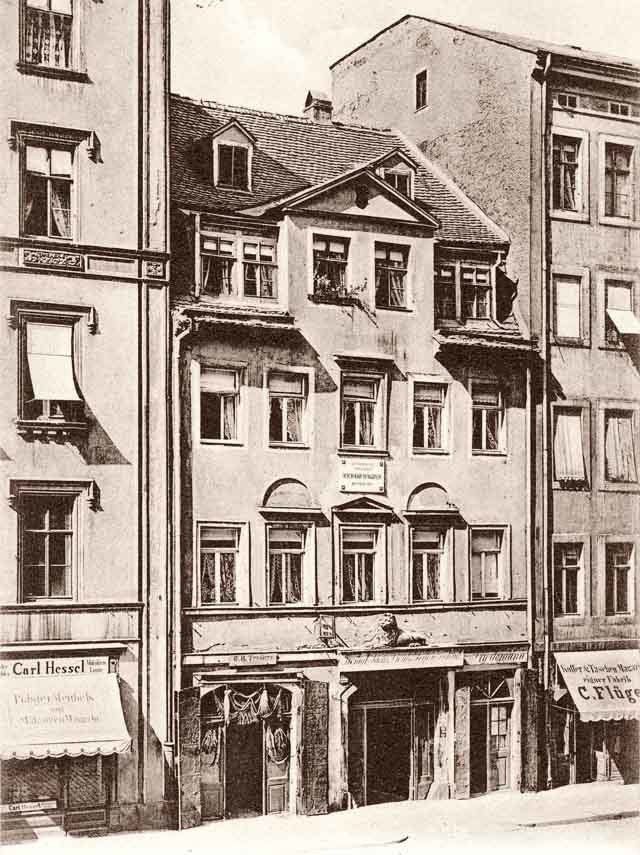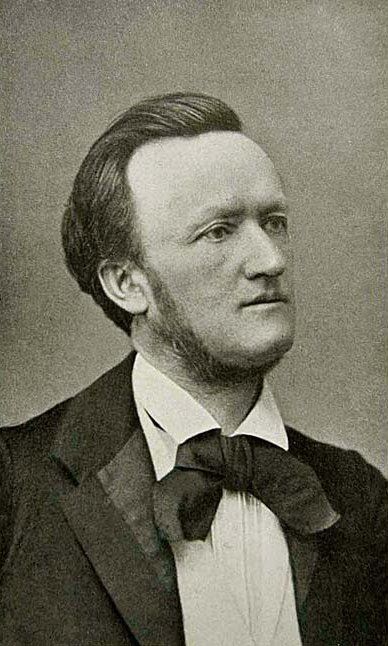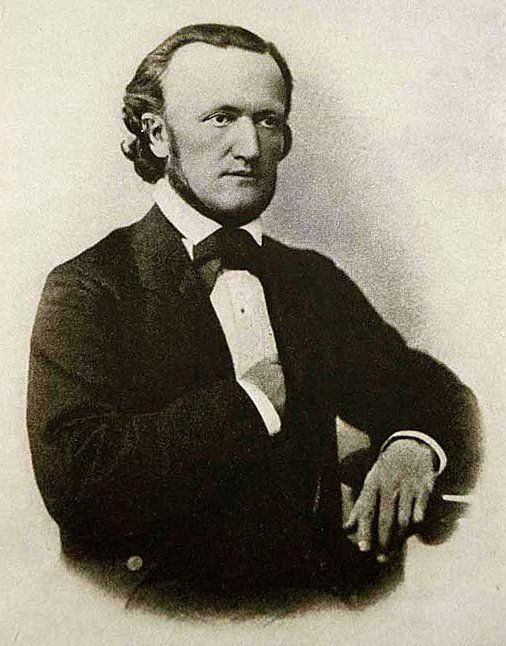WAGNER'S LIFE
Date of Birth: 22 May 1813
Date of Death: 13 February 1883
German composer, one of the most important artists of the 19th century as well as the creator of the music drama as a complete work of art.
The beginnings as a composer.
Wagner spent his youth in Dresden and Leipzig, received musical composition tuition through Leipzig Thomaskantor Christian Theodor Weinlig (*1780-1842), composed a few instrumental compositions, and started his theatre activity as choir director in Würzburg. What followed were employments as musical director at Bad Lauchstädt, Magdeburg, and Königsberg, where he married actress Minna Planer (*1809-1866) in 1836.
From 1837 to 1839 he held the position of the music director at the theatre in Riga. He flew the city in 1839, heavily in debt, and, after an adventurous voyage via London, arrived in Paris. There he had to depend on scarce incomes from authorial works and opera arrangements.
Court Conductor in Dresden.
In 1842 Wagner achieved a first grand opera success with ‘Rienzi’ in Dresden. He was appointed court conductor and was able to premiere “Der Fliegende Holländer”, an opera he composed while still in Paris. In 1845 another premiere followed with “Tannhäuser”. The performance of Beethoven’s 9th Symphony and Glück’s “Iphigenie in Aulis” edited by Wagner count to his most illustrious achievements as conductor.
Due to his involvement in the Dresden May Uprising in 1849 he was a wanted man and fled to Switzerland.
Exile in Switzerland.
After the vain attempt of establishing himself as an opera composer in Paris, he and his wife settled down in Zurich, and lived in a house on the Wesendonck family property. He produced essential aesthetic writings and composed “Das Rheingold”, “Die Walküre” and two acts of the opera “Sigfried”. The work on the cycle “Der Ring der Nibelungen” was interrupted in 1857 and only continued 12 years later. During the composition of the opera “Tristan und Isolde” Wagner had to leave Zurich in 1858 due to the tensions created by his growing affection for Mathilde Wesendonck.
From Munich to Lucerne & Tribschen.
At first he went to Venice, then spent some time in Lucerne, Paris and Vienna. His financial situation become more and more oppressive until King Ludwig II of Bavaria called him to Munich in 1864. Thus could “Tristan und Isolde” be premiered in 1865, and “Die Meistersinger von Nürnberg” in 1868. However, already in 1866 did Wagner leave Munich due to various accusations against his person, amongst other because of his extremely close relationship to the King, and a polemic written against a member of the Munich cabinet, and went to Tribschen (today near Lucerne). There he married Cosima von Bülow in 1870, a daughter of his friend Franz Liszt, who had always supported him on a humane and artistic level. The completion of the “Meistersinger”, the renewed work on the “Ring”, and the scripting of further theoretical texts, as well as the intense and amicable encounter with Friedrich Nietzsche, who was then teaching in Basel, all happened in this period.
Bayreuth & Death in Venice.
In 1872 Wagner moved to Bayreuth with his wife and three children Isolde, Eva and Siegfried. On 22 May the foundation for the festival house was laid. In 1876 the first Bayreuth Festival was celebrated with “Der Ring der Nibelungen”, directed by Hans Richter. In 1882 the second festival followed featuring 16 performances of “Parsifal” as directed by Hermann Levi, which were, contrary to those in 1876, also a financial success. Afterwards Wagner, who had spent quite some time in Italy before due to health reasons, moved to Venice, where he succumbed to his chronic heart condition.


